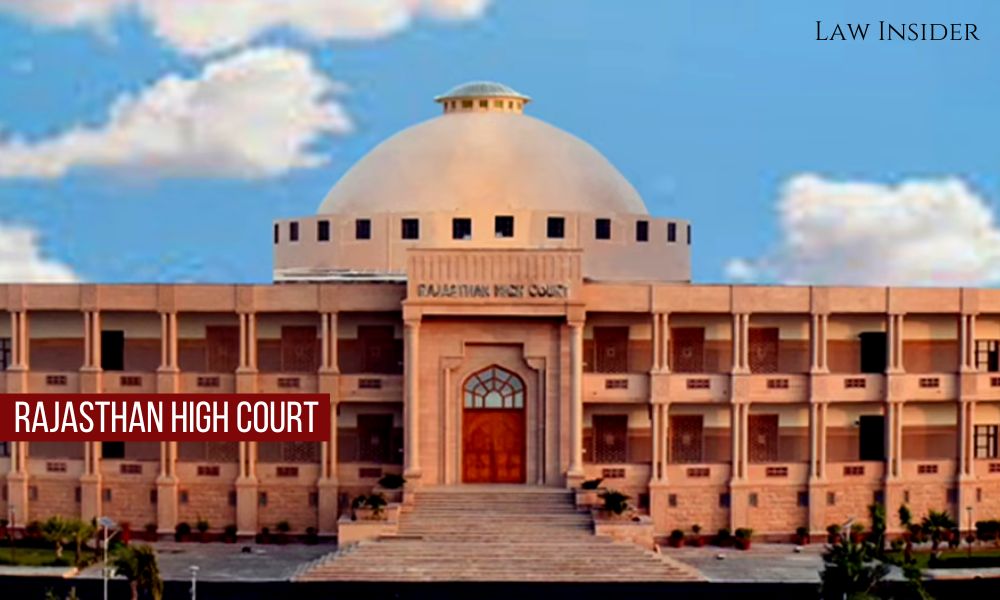Priyanka Singh
Published on: September 14, 2022 at 20:51 IST
In a recent judgment by a three-judge bench of Justices Sandeep Mehta, Vijay Bishnoi, and Arun Bhansali, it was observed that the use of the word “unmarried” in Rule 2(c) of the Rajasthan Compassionate Appointment of Dependents of Deceased Government Servant Rules, 1996 deprived a married daughter of the right of consideration and violated their right to equality. [Priyanka Shrimali vs. the State of Rajasthan & Ors. with other connected matters]
The Rule 2(c) defines dependent (stands amended w.e.f. 28.10.2021), wherein the married daughter has been included in the definition, subject to conditions.
The Court also noted that the government servants/employees at present who have died prior to the date of amendment in the provision would be governed by the unamended provision, therefore negating its retrospective effect.
The bench made a reference while passing the order, “The provision of Rule 2(c) of the Rules of 1996, which excludes the married daughter from definition of dependent prior to its amendment vide notification dated 28.10.2021, is discriminatory and violative if Articles 14 to 16 of the Constitution of India and as such, the word ‘unmarried’ from the definition of ‘dependent’, is struck down.”
“Further, in Rule 5 of the Rules of 1996 also the word unmarried from the definition of ‘dependent’, is struck down. Further, in Rule 5 of the Rules of 1996 also the word unmarried daughters/adopted unmarried daughter, shall be read as daughters/adopted daughter.”
As a consequence, the bench directed the following, on account of striking down of the word “unmarried” from the definition –
“(i) the same shall not affect any case, wherein compassionate appointment has already been granted under the provisions as they stood before this order;
(ii) the same by itself would not provide a cause of action to any applicant and would apply to cases which are either pending before the competent authority and/or to the cases where litigation is pending on the date of this order only;
iii) the provisions and other requirements of the definition regarding the applicant being wholly dependent on the deceased government servant at the time of his/her death would be scrupulously applied;
(iv) all the parameters as laid down by Hon’ble Supreme Court for grant of compassionate appointment, shall also be scrupulously followed and that
(v) all other provisions of the Rules except the inclusion of the ‘married daughter’ in the definition of ‘dependent’, shall have full application.”
The Court overruled all other judgments including Sumer Kanwar vs. State o Raj & Ors.: 2012(3) RLW 2546 (Raj.), which followed the upholding of denial of compassionate appointment to married daughter.
The division bench observed the definition of “dependent” being a matter of policy and holding that the married daughter can’t be said to be dependent on the deceased employee and, that, the scope of compassionate appointment cannot be widened.
Whereas, the High Court quoted the fact that holding the married daughter as being eligible for compassionate appointment has been upheld by the Supreme Court as well.
The Court quoted that the redefined provision shall only apply to the pending cases and not to those already quashed.
Additionally, the bench also stated that when the government servant has died long ago, it will not give rise to any fresh cause of action to any applicant.
The bench also opined that now under the Maintenance and Welfare of Parents and Senior Citizens Act, 2007, equal duty has been imposed on both sons and daughters to take care and maintain the parents , thus, also implying the need to grant credit to unmarried daughters.
On the argument of a married daughter being dependent on her husband/in-laws, the Court stated that it is only a consequence of marriage that the daughter would cease to be dependent on the deceased government servant, therefore being disentitled to the compassionate appointment.
It stated, “The only reason indicated is purported lack of presumed dependence, the said basis, cannot be sustained, inasmuch as, there may be cases where despite marriage, the daughter for various reasons may continue to be dependent on the deceased government servant.”
The Court thus, held it clear that it was discriminative of a married dependent son to be entitled to compassionate appointment and a dependent married daughter to not be.

